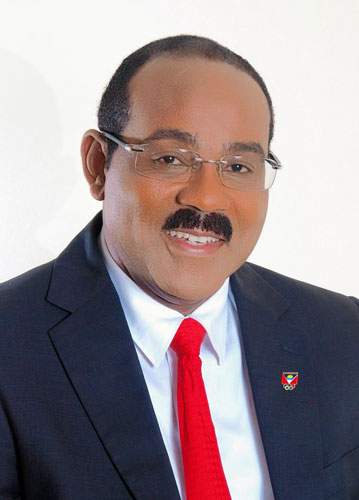While visiting here on a three-day visit Peter David Phillips, Jamaica’s finance and planning minister became the 10th speaker to keynote the 10th anniversary Caribbean International Network (CIN) Lecture Series and for the significant milestone achievement, the parliamentarian talked about “Jamaica’s Path To Prosperity.”
“Jamaica’s success is your success,” he told a mostly diaspora audience at the Schomburg Library.
Dominated by Jamaican ex-patriots concerned with issues on the economy, many were prepared to ask the government representative about everything from the diminishing dollar exchange rate, the process of opening a bank account on the island, and the intricacies surrounding loans from the International Monetary Fund (IMF).
“Jamaica’s economic situation is not unique,” Phillips responded, “the entire CARICOM is familiar with the process and “more than half have similar situations.”
He said that since 2008 the entire Caribbean has been overwhelmed by the global events caused by recession. Adding that the “Caribbean debt is not so large as to affect global market” because of its middle market state status, Caribbean and the diaspora community is important to the decision making process.”
“The foundations have been truly made. We have a growing political influence.”
On the second anniversary of Hurricane Sandy, Phillips alluded to special concerns the region faced with regards to climate change and the annual uncertainties that prevail from May to November when hurricanes threaten.
He particularly cited the tragic earthquake that killed many in Haiti and how it might have affected that economy.
In his bad news good news report, Phillips explained some of the economics impediments the nation has faced since gaining independence in 1962. He said slow economic growth was a major issue. The fact since 1973 there has been little growth and the public debt has increased 600 percent weighs heavily on the minds of fiscal planners.
With internal resources draining from the $25 billion national reserve (GDP) debts from loans accounts for more than affordable amounts needed to serve the public. The good news he said is that the country is “debting down and trending forward.”
The “Ease in Doing Business Report” by the World Bank recently ranked 189 countries. For 2015 Jamaica registered a major improvement by moving 27 places from the 85th position it held in the 2014 report to now being ranked 58th. Jamaica now has the Caribbean’s highest ranking.
Countries within the Caribbean ranked included: The Caribbean region includes the following economies: Antigua and Barbuda, The Bahamas, Barbados, Dominica, the Dominican Republic, Grenada, Haiti, Jamaica, St. Kitts and Nevis, St. Lucia, St. Vincent and the Grenadines, and Trinidad and Tobago.
“We are encouraged by Jamaica’s new global competitiveness standing which highlights that we are open for business,” Phillips stated. “It is clear evidence that the present positive movement in our competitiveness is associated with our sustained program of comprehensive economic reforms which we started approximately two years ago.”
He accounts the positive change to agriculture, tourism, mining and improvements to bond yields. He added that interest rates were down to three percent with improvements in youth unemployment. Phillips said the exchange rate has stabilized and with a recently obtained $800 million loan, the island managed to negotiate the lowest interest rate ever.
Illiteracy Phillips said now stands at less than 10 percent. Initially three out of 10 individuals were considered illiterate.
According to the legislator, the island now boasts an “enviable primary health care system, world class telephone service, free and fair media, freedom of expression, a competent judiciary, iconic cultural artists” – Usain Bolt, Bob Marley, Shelly Fraser-Pryce, and Victoria Campbell Brown and others.
“You don’t have to be born with a silver spoon in order to benefit from the golden promise,” Phillips said.
Congresswoman Yvette Clarke described the minister’s message as “heartwarming.”
Representing Brooklyn’s 9th CD, Clarke was tasked with welcoming the minister but arrived late and late in the program injected a few contributions she along with colleagues in the Congress made by meeting with IMF officials to secure a loan to the island.
Other speakers included Lowell Hawthorne, CEO of Golden Krust Caribbean Bakery & Grill, Maureen Hayden-Cater, president of First Global and Stephen Hill, CEO of CIN TV.
Previous keynote speakers include: Robert Hill, Prof. Rex Nettleford, former Prime Ministers Edward Seaga, Percival James Patterson and Bruce Golding, Ronald Thwaites, Member of Parliament, Greg Christie, former contractor general, and Lowell Hawthorne and Douglas Orane, businessmen.
During his visit, Phillips toured the New York Stock Exchange, addressed a luncheon organized by the Jamaican American Chamber of Commerce and attended a promotional breakfast hosted by JAMPRO. He was also interviewed on CNBC –TV.
























